
Thunderstorms can turn your confident canine into a trembling ball of nerves. But don’t worry! With the right strategies, you can help your furry friend weather the storm. Let’s explore expert-backed tips to calm your dog’s storm anxiety.
1. Create a Safe Haven
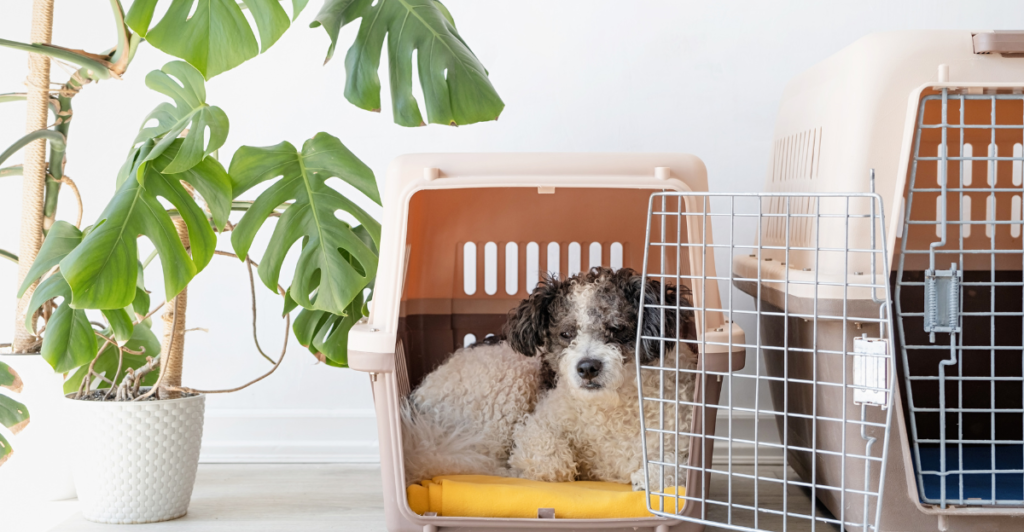
Designate a cozy spot where your dog can retreat during storms. This could be a crate, a closet, or a quiet room. Fill it with their favorite blankets and toys to make it inviting. A familiar, enclosed space can provide comfort and security.
2. Stay Calm and Collected

Your dog looks to you for cues. By remaining calm and composed, you signal that there’s no real danger. Avoid fussing over them excessively, as this can reinforce anxious behavior. Instead, act normally and provide gentle reassurance.
3. Distract with Engaging Activities
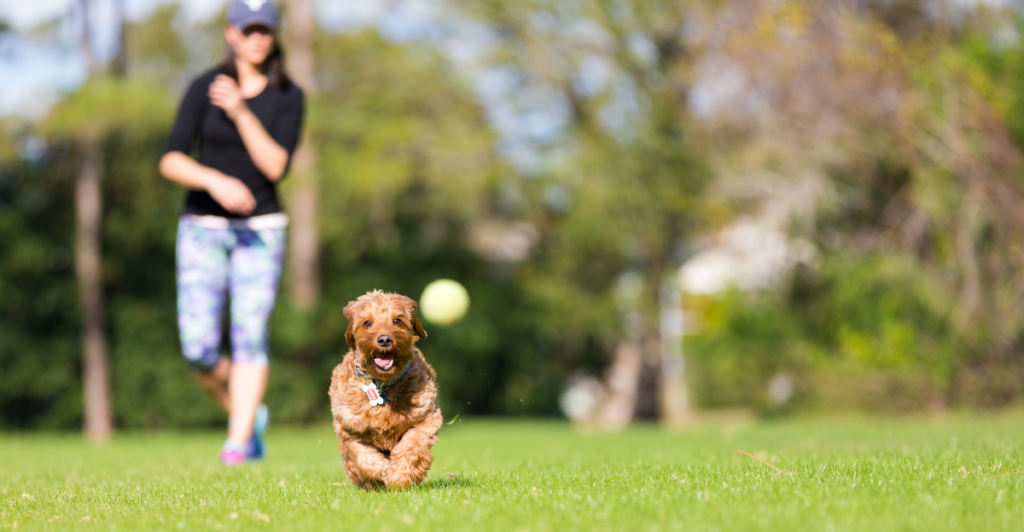
Keep your dog’s mind occupied during storms. Interactive toys, treat-dispensing puzzles, or a game of fetch can divert their attention from the unsettling sounds outside. This not only distracts but also creates positive associations with stormy weather.
4. Use Calming Wraps or Thundershirts

Consider using a snug-fitting garment like a Thundershirt. These wraps apply gentle, constant pressure, similar to swaddling a baby, which can have a calming effect on anxious dogs.
5. Play Soothing Sounds

Drown out the thunder with calming music or white noise. Classical music, reggae, or soft rock can be particularly effective in soothing anxious dogs. There are even playlists designed specifically for this purpose.
6. Desensitize to Storm Sounds

Gradually expose your dog to the sounds of thunderstorms in a controlled environment. Play recordings of storm sounds at a low volume while engaging in enjoyable activities. Over time, increase the volume as your dog becomes more comfortable, helping them build a tolerance to the noise.
7. Consult Your Veterinarian
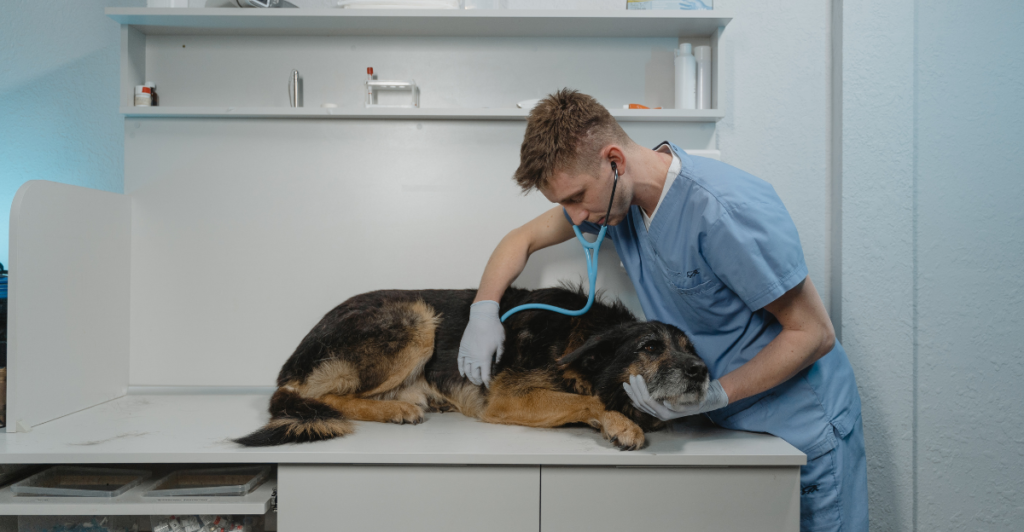
If your dog’s anxiety is severe, consult your veterinarian. They can recommend anti-anxiety medications or supplements that are safe and effective. Options like Alprazolam, Sileo, or Gabapentin have been used to help dogs with noise aversion.
8. Try Calming Pheromones
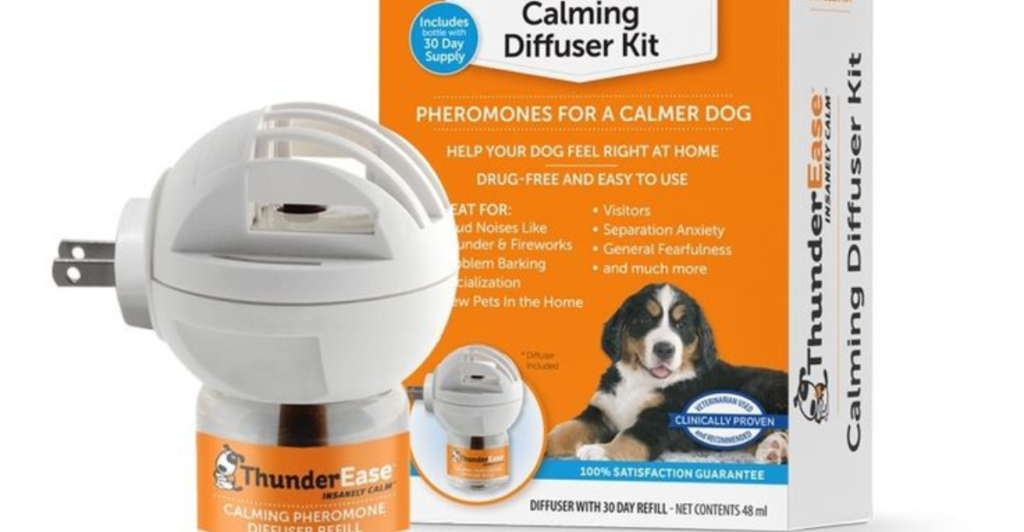
Pheromone diffusers or sprays can emit calming scents that mimic natural dog appeasing pheromones. These can help reduce anxiety and create a sense of well-being during stressful situations like thunderstorms.
9. Maintain a Routine
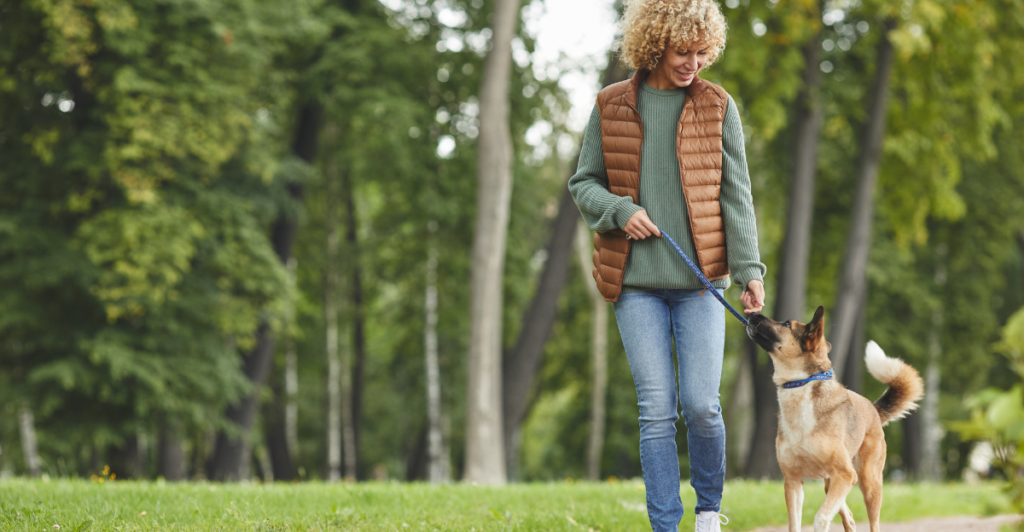
Keeping a consistent daily routine can provide a sense of normalcy and security for your dog. Regular feeding, exercise, and playtimes can help reduce overall anxiety levels, making them more resilient during storms.
10. Avoid Reinforcing Fearful Behavior
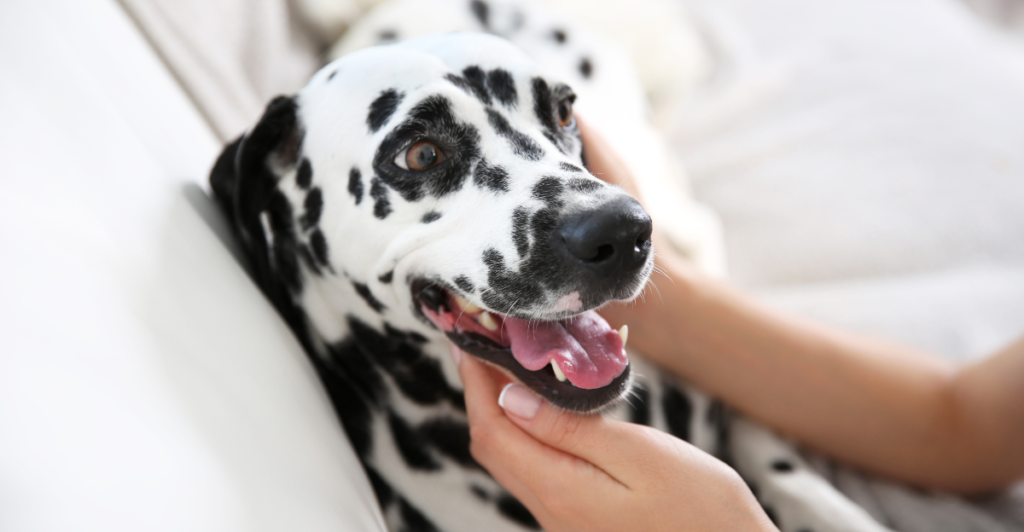
While it’s natural to want to comfort your dog, excessive coddling can reinforce their fear. Instead, offer gentle reassurance without making a big fuss. Reward calm behavior with treats or praise to encourage a composed response to storms.
11. Provide Physical Comfort
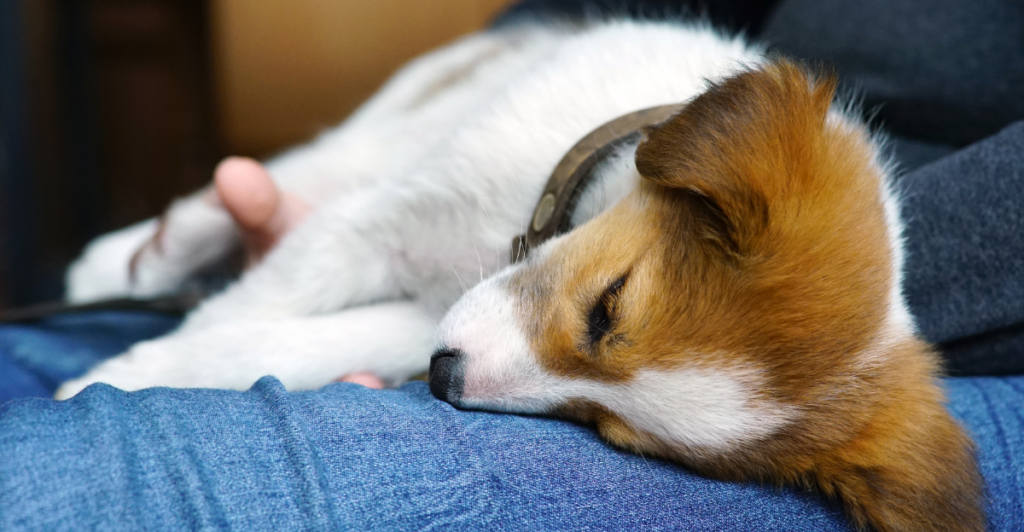
Some dogs find comfort in physical closeness during storms. Allow your dog to sit near you or on your lap if it helps them feel more secure. Your presence can have a soothing effect and reduce their anxiety.
12. Use Aromatherapy

Certain scents, like lavender, have calming properties. Using a pet-safe essential oil diffuser can help create a relaxing environment for your dog during a storm. Always ensure that the oils used are safe for pets and the area is well-ventilated.
Helping Your Dog Weather the Storm

Storm anxiety can be challenging for both dogs and their owners. By implementing these expert-backed strategies, you can help your furry friend feel safer and more relaxed during thunderstorms. Remember, patience and consistency are key. With time and effort, your dog can learn to weather the storm with greater ease.
Discover more of our trending stories and follow us to keep them appearing in your feed

Scientists Are Bringing Back The Wooly Mammoth
12 Dog Breeds That Should Never Be Exposed To Cold
California Is Breaking Apart: A Fault Line Is Forming Faster Than Anyone Predicted
California Is Splitting Apart: A Fault Line Is Forming Faster Than Anyone Predicted
References:
Reference 1
Reference 2
Reference 3
This article first appeared here
Stay connected with us for more stories like this! Follow us to get the latest updates or hit the Follow button at the top of this article, and let us know what you think by leaving your feedback below. We’d love to hear from you!







